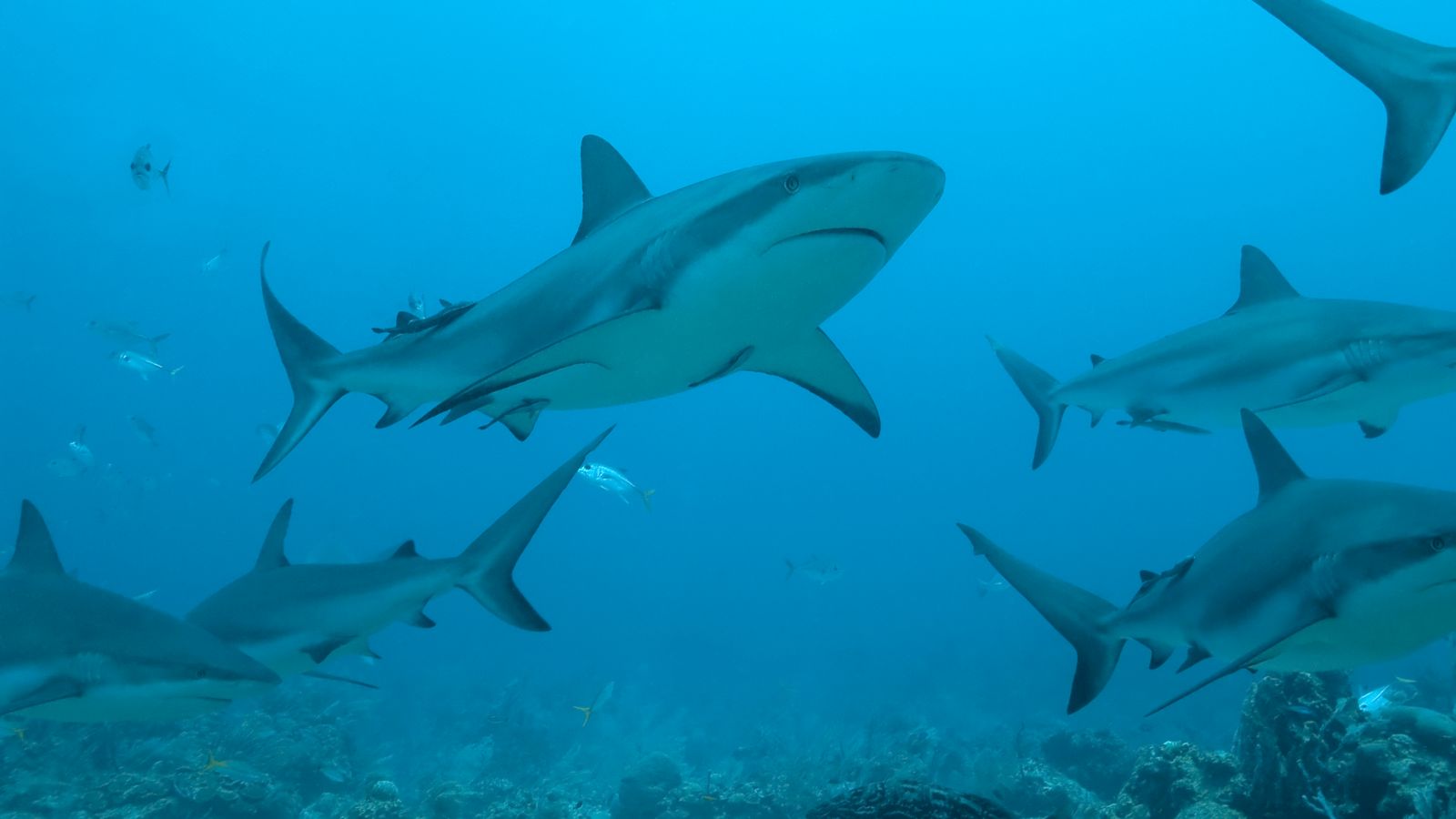Half a million sharks could be killed for their natural oil to produce coronavirus vaccines, according to conservationists.
One ingredient used in some COVID-19 vaccine candidates is squalene, a natural oil made in the liver of sharks.
Squalene is currently used as an adjuvant in medicine – an ingredient that increases the effectiveness of a vaccine by creating a stronger immune response.
British pharmaceutical company GlaxoSmithKline currently uses shark squalene in flu vaccines.
The company said it would manufacture a billion doses of this adjuvant for potential use in coronavirus vaccines in May.
Around 3,000 sharks are needed to extract one tonne of squalene.
Shark Allies, a California-based group, suggests that if the world’s population received one dose of a COVID-19 vaccine containing the liver oil, around 250,000 sharks would need to be slaughtered, depending on the amount of squalene used.
If two doses are needed to immunise the global population, which is likely according to researchers, this would increase to half a million.
To avoid threatening shark populations, scientists are testing an alternative to squalene – a synthetic version made from fermented sugar cane.
:: Subscribe to the Daily podcast on Apple Podcasts, Google Podcasts, Spotify, Spreaker
Stefanie Brendl, founder and executive director of Shark Allies, said: “Harvesting something from a wild animal is never going to be sustainable, especially if it’s a top predator that doesn’t reproduce in huge numbers.
“There’s so many unknowns of how big and how long this pandemic might go on, and then how many versions of it we have to go through, that if we continue using sharks, the numbers of sharks taken for this product could be really high, year after year after year.”
According to estimates made by conservationists, around three million sharks are killed every year for squalene, which is also used in cosmetics and machine oil.
There are fears that a sudden rise in demand for the liver oil could threaten populations and see more species become endangered as many species rich in squalene, such as the gulper shark, are already vulnerable.

